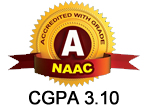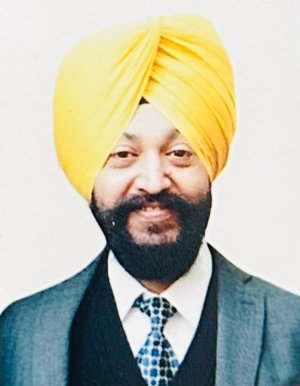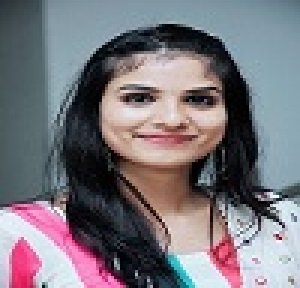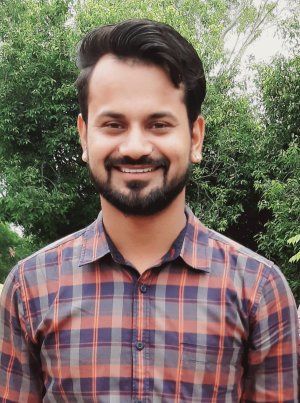

INTRODUCTION
Mathematics is not about numbers, equations, computations, or algorithms: it is about understanding." This profound insight by William Paul Thurston reflects the guiding philosophy of our Department of Mathematics. Established in 1945,our department has long been a cornerstone of academic excellence within the college. Over the decades, it has evolved into a hub for innovation and critical thinking, equipped with modern facilities and a vibrant community of learners and scholars. We provide a strong education in Mathematics with a focus on understanding and solving real-world problems. Our department is well-equipped and offers a lively environment where students can learn and grow. With regular guest speakers, we aim to prepare students for successful careers in mathematics.
VISION :
MISSION :
The mission of the mathematics department is to provide an environment where students can learn and become competent users of mathematics and mathematical application. Moreover, the department will contribute to the development of students as mathematical thinkers, enabling them to become life long learners, to continue to grow in their chosen professions, and to function as productive citizens.

Name: Dr. Dalvinder Singh
Designation: Assistant Professor
Joining Date: 1998-09-07
Qualification: M.Sc ,M.Phil,Ph.D.in Mathematics , B.ed
Area of Specialisation:Pure Mathematics
Email: [email protected]
Mobile: 9814421031
Vidwan ID : 382537
Appointment Type : Regular
Numerical Methods Published by Sharma Publications
1 .Presented Paper at National Level Conference- Futuristic Vision- Qualitative Literacy for new Millennium at 42nd Indian Social Science Association Conference in 2010-11 held at Govt. T.R.S (Auto) College Rewa (M.P)
2. Advances in Mathematical & Information Sciences in a National Level Seminar at S.G.T.B. Khalsa College,Sri Anandpur Sahib

Name: Dr. Kirti Bhagirath
Designation: Assistant Professor
Joining Date: 2018-12-03
Qualification: M.Sc. (Hons), CSIR UGC NET qualified , B.ed
Area of Specialisation:Applied Mathematics
Email: [email protected]
Mobile: 8054111979
Vidwan ID : 382648
Appointment Type : Guest Faculty
1. Five -Day workshop on Research methodology : Techniques , Analysis and Presentation.
2 days course on Data Science using Python conducted by NIELTS

Name: Mr. Jagjit Singh
Designation: Assistant Professor ( Guest Fa
Joining Date: 1996-05-20
Qualification: M.sc Mathematics, CSIR-UGC NET
Area of Specialisation:Pure Mathematics
Email: [email protected]
Mobile: 8146051171
Vidwan ID : 382630
Appointment Type : Guest Faculty
Three Day Live Online Workshop on "Mathematica for Beginners (A Technical Computing System)"
1. Five Day National Level FDP on " RESEARCH METHODOLOGY: TECHNIQUES, ANALYSIS AND PRESENTATION", 2. Seven Day FDP on "Together for Education- Embracing Changes Amid Technological Challenges", 3. A Six Day e-FDP on "Applies Mathematics and Related Fields (AMRF-2020)",
2022-2023Lesson plansBsc 1st maths 2022-23.pdfBsc 2nd Maths 2022-23.pdf Bsc 3rd Maths 2022-23.pdf |
2021-2022Lesson plansBsc 1st Maths 2021-22.pdfBsc 2nd Maths 2021-22.pdf Bsc 3rd Maths 2021-22.pdf |
2020-2021Lesson plansBsc 1st Maths 2020-21.pdfBsc 2nd Maths 2020-21.pdf Bsc 3rd Maths 2020-21.pdf |
2019-2020Lesson plansBsc 1st maths 2019-20.pdfBsc 2nd Maths 2019-20.pdf Bsc 3rd Maths 2019-20.pdf |
2018-2019Lesson plansBsc 1st Maths 2018-19.pdfBsc 2nd Maths 2018-19.pdf Bsc 3rd Maths 2018-19.pdf |
Department of Mathematics offers Maths as an optional subject at undergraduate leval in
3.In B.COM in semester II and semester IV
B.SC/BA 1 SEM 1
COURSE TITLE : CALCULUS
COURSE OUTCOMES
1.Understand the fundamental concepts of differential calculus and their applications
2.Understand the basic concepts of integral calculus and their applications in problems.
COURSE TITLE: DIFFERENTIAL EQUATIONS
COURSE OUTCOMES
COURSE TITLE : COORDINATE GEOMETRY
COURSE OUTCOMES
After the completion of the course, Students will be able to
B.SC BA / 1 SEM II
COURSE TITLE : PARTIAL DIFFERENTIAL EQUATIONS
COURSE OUTCOMES
COURSE TITLE : ALGEBRA AND TRIGNOMETRY
COURSE OUTCOMES
COURSE TITLE: ANALYTICAL GEOMETRY
COURSE OUTCOME
Course Outcome of Analytical Geometry Students will able to:
B.SC BA / 2 SEM III
COURSE TITLE : ADVANCE CALCULUS
COURSE OUTCOMES
COURSE TITLE : ANALYSIS
COURSE OUTCOMES
COURSE TITLE : STATISTICS
COURSE OUTCOMES
B.SC BA / 2 SEM IV
COURSE TITLE : DYNAMICS
COURSE LEARNING OUTCOMES: This course will enable the students to:
iii) Know the inertia constants for a rigid body and the equation of momental ellipsoid together with the idea of principal axes and principal moments of inertia and to derive Euler’s equations of motion of a rigid body, moving about a point which is kept fixed.
COURSE TITLE : ANALYSIS II
COURSE OUTCOME
Students will able to
. • Calculate exponentials and integral powers of complex numbers.
COURSE TITLE : ADVANCE CALCULUS II
COURSE OUTCOME
Students will able to
B.SC/BA 3 SEM V
COURSE TITLE : ALGEBRA 1
COURSE OUTCOMES
, 3. Recognize the concepts of the terms span, linear independence, basis, and dimension, and apply these concepts to various vector spaces and subspaces
COURSE TITLE MATHEMATICAL METHODS I
COURSE OUTCOMES:
After the completion of the course, Students will be able to
COURSE TITLE : DISCRETE MATHEMATICS I
COURSE LEARNING OUTCOMES: This course will enable the students to:
iii) Solve real-life problems using finite-state and Turing machines.
B.SC/BA 3 SEM VI
COURSE TITLE: ALGEBRA II .
COURSE LEARNING OUTCOMES: This course will enable the students to::
iii) Learn properties of inner product spaces and determine orthogonality in inner product spaces.
vii) Know the fundamental concepts in ring theory such as the concepts of ideals, quotient rings, integral domains, and fields.
viii) Learn in detail about polynomial rings, fundamental properties of finite field extensions, and classification of finite fields.
COURSE TITLE : MATHEMATICAL METHODS II
COURSE OUTCOMES
i)To introduce the concepts of partial differential equations, Calculus of Finite differences, statistics, Fourier series and Fourier transform. Identify real phenomena as models of partial derivative equations.
iii) To apply the concept of probability to find the physical significance of various distribution phenomena.
COURSE TITLE : DISCRETE MATHEMATICS II
COURSE OUTCOMES
i)The course aims at introducing the concepts of ordered sets, lattices, sublattices and homomorphisms between lattices.
ii)It also includes introduction to modular and distributive lattices along with complemented lattices and Boolean algebra.
iii) Some important applications of Boolean algebra are discussed in switching circuits.
B.COM SEM II
COURSE TITLE:BUSSINESS MATHEMATICS
LEARNING OUTCOMES
Upon successful completion of this course, students will be able to
SEM IV
COURSE TITLE : OPERATIONAL RESEARCH
LEARNING OUTCOMES
ADD ON COURSE
The department of mathematics also offers an ADD ON course namely Data Care Management to all undergraduate courses.The course is divided into three year as
SEM I
PAPER A : FUNDAMENTALS OF INFORMATION TECHNOLOGY
Learning Outcomes:
At the end of this course, student should be able to
(a) Understand basic concepts and terminology of information technology.
(b) Have a basic understanding of personal computers and their operations.
(c) Be able to identify issues related to information security.
SEM II
PAPER B : MS-OFFICE AUTOMATION TOOLS
LEARNING OUTCOMES
Upon completion of this course students will be able to
: Demonstrate an advanced knowledge of the Word Processing package, MS Office and a· knowledge of how to design & create effective and structured documents like technical reports, letters, brochures, etc.,
Demonstrate the skills in the appropriate use of various features of the spread sheet· package MS Excel and also to create useful spreadsheet applications like tabulated statements, balance sheets, statistical charts, business statements, etc.
Demonstrate the skills in making an effective presentation with audio and video effects· using the MS Excel package
Draw graphical pictures, flow charts, block diagrams etc., using the drawing tools· available in MS Word or MS Power Point and incorporate them into documents and presentations.
SEM III
PAPER A : Database Management System
Learning Outcomes:
At the end of the course, student should be able to
SEM IV
PAPER B: Advance Database Management Systems and PL/SQL
Learning Outcomes:
A)Understand database concepts and structures and query language
Understand the E R model and relational model
B)To design and build a simple database system and demonstrate competence with the fundamental tasks involved with modeling, designing, and implementing a DBMS.
C)Understand Functional Dependency and Functional Decomposition.
D)Apply various Normalization techniques
F)Perform PL/SQL programming using concept of Cursor Management, Error Handling, Package and Triggers
G)Execute various advance SQL queries related to Transaction Processing & Locking using concept of Concurrency control.
H)Understand query processing and techniques involved in query optimization.
Understand the principles of storage structure and recovery management.
III) ADVANCE DIPLOMA IN DATA CARE MANAGEMENT
SEM V
PAPER A : Database Administration of Oracle
Learning Outcomes:
SEM VI
PAPER B: Advance Database Administration of Oracle
LEARNING OUTCOMES
Successful students will be able to:
Various students are encouraged for participation in inter college competitions and youth festivals.
Dr.CV RAMAN SCIENCE SOCIETY
The staff and students of Maths,physics and chemistry Department collectively forms this society and all activities are carried out under this society. Students celebrate science day every year on the eve of Dr. CV Raman’s birthday. Various competitions are organized including debates ,power point presentations ,science quiz etc.
Most of the graduates in Maths department pursue post graduation or bachelor of education.